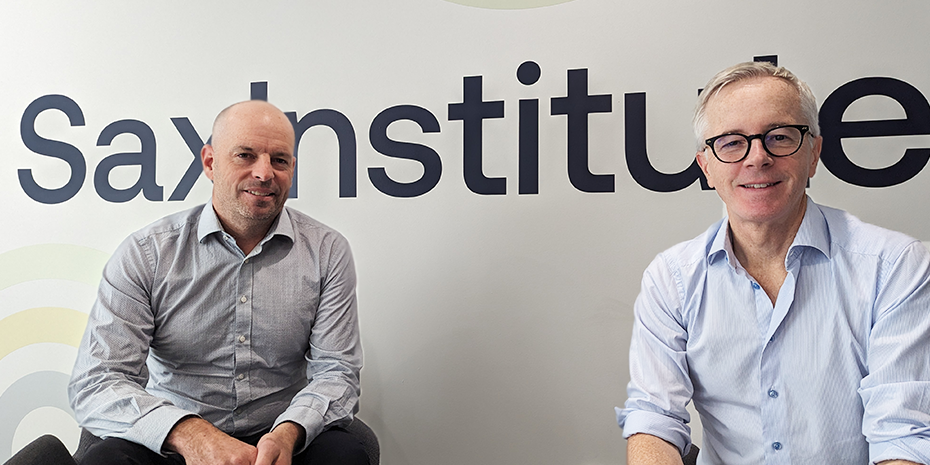
The Sax Forum is an initiative that allows the Sax Institute to share knowledge among its Members and help understand what we can do better together. On 5 October, the Institute was delighted to welcome Professor John Lavis, Director of Canada’s McMaster Health Forum, to its offices to meet with the executive team and hold a Sax Forum webinar on the progress of the Global Commission on Evidence to Address Societal Challenges: “Where are we now and how can we go farther, faster together?”.
Created in 2021 in collaboration with experts and implementation groups from around the globe, the Commission provides recommendations about ways to improve the use of research evidence, both in routine times and in future global crises – an aim that goes to the heart of the Sax Institute’s own core mission.
Around 60 researchers, academics and policy professionals from the Sax Institute’s Member organisations logged in to hear Professor Lavis talk about the Commission’s most recent work. Key to improving the use of evidence in policy challenges, he said, is the role of a “general contractor”, or someone who can clarify questions emerging from decision-making processes; source forms of existing evidence; place this evidence in the relevant policy or other framework; and deliver evidence products and processes to tight deadlines.
General contractors should also be able to draw on “living evidence syntheses” – or frameworks for building and maintaining up-to-date and rigorous syntheses of knowledge within a specific research or policy area. These living evidence syntheses are continuously updated as policy contexts, issues and evidence evolve.
Professor Lavis noted that many parts of governments are probably doing a lot of this already – but that we are now in a position to do it faster, better, more systematically and more transparently.
Implementation priorities
The Commission has identified three critical implementation priorities in improving the use of evidence. Firstly, we need to strengthen domestic evidence-support systems – which involves expanding capabilities to create the aforementioned general contractors and building connections between them.
A second priority is to invest in a suite of living evidence syntheses, which Professor Lavis characterised as real “game-changers”. He said duplication in evidence generation was a real problem and funders need to work together to ensure topic coverage and support the efficient use of resources, including the use of artificial intelligence. Climate action, education, health, social development, emergency preparedness and international development were all priority areas for developing living evidence syntheses, Professor Lavis said.
The third priority is the need to put evidence at the centre of everyday life. That includes making evidence available to citizens when they are making choices, engaging with them to ask and answer questions and making evidence-based choices the default or easy option for people.
Summing up, Professor Lavis said in the approach he had outlined the starting point should always be the emerging policy questions that need to be answered, and not finding a use for research that had just been done – a perspective that has always been a focus of the work of the Sax Institute. Other new emphases were the need to draw from many types of evidence, in particular those from other countries and from outside government; and the emergence of AI-driven living evidence syntheses. He also noted the importance of networking across international borders and the use of co-production models not just in primary research but also for evidence support.
This fascinating webinar on the latest thinking around the use of evidence drew many questions from the audience, in particular concerning the use of AI in living evidence syntheses, as well as the role of the general contractor as envisaged by the Commission.
The Evidence Commission report, released in January 2022, provides further detail on ways to improve the use of research evidence, while in January 2023, the Commission released its first annual update (Update 2023), focussed on three implementation priorities listed above.
